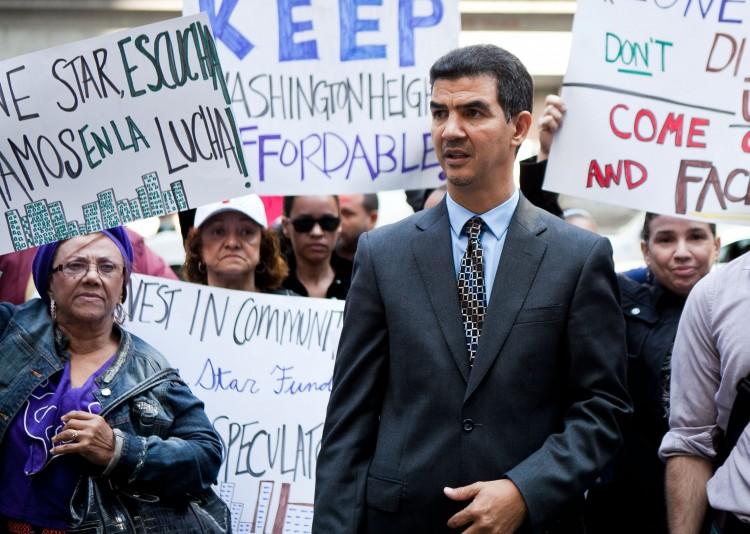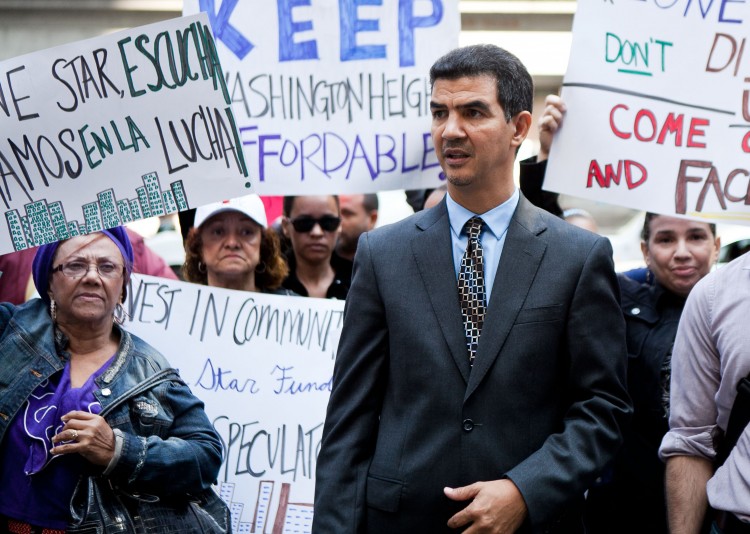NEW YORK—For two years, there was no such thing as a weekend for council member Ydanis Rodriguez. To pay for his undergrad education at City College of New York, Rodriguez drove a taxi all night on Friday and Saturday evenings. On weekdays, he drove from 7 p.m. to 12 a.m. and went to class during the day.
The hours were deplorable, but the end justified the means—that is, until one fateful evening when Rodriguez picked up two inconspicuous passengers. He drove them to their destination. Shortly after the men went inside the building, a police car pulled up and told Rodriguez he was transporting dangerous men, and that he needed to leave the premises immediately.
“I called my brother-in-law right after and told him I was going to quit, I had had it,” Rodriguez said, recalling the frightening moment.
Like any immigrant who didn’t come from a wealthy family, Rodriguez had his fair share of disagreeable jobs before joining City Council in 2010. What got him there, however, was more than his intelligence and industrious work habits. It was the moral support he received as a child.
Rodriguez grew up with 13 siblings in Licey al Medio, in the Dominican Republic. He was the eighth child. His father, a farmer, worked from 5:30 a.m. to 7 p.m. without a single complaint.






